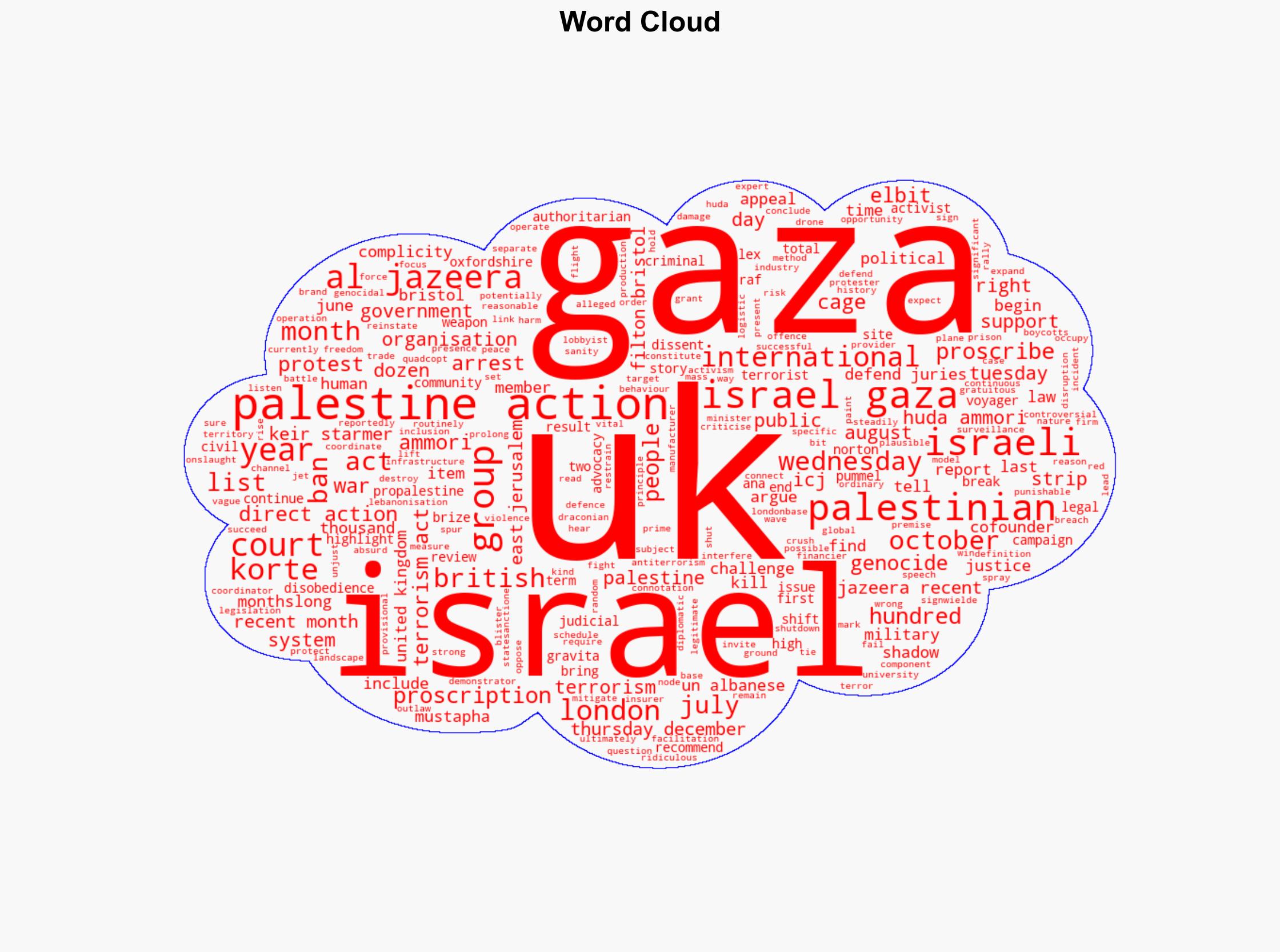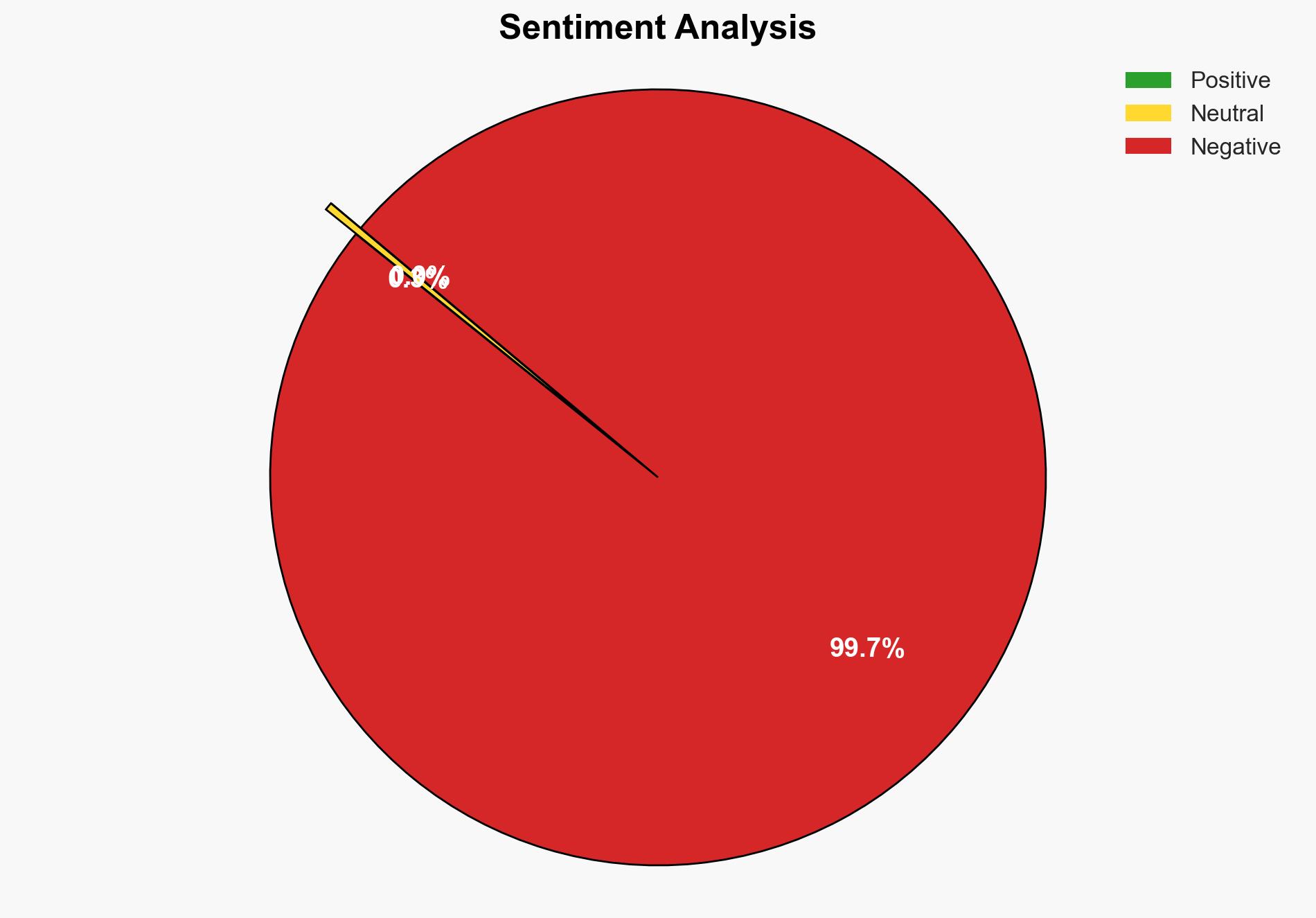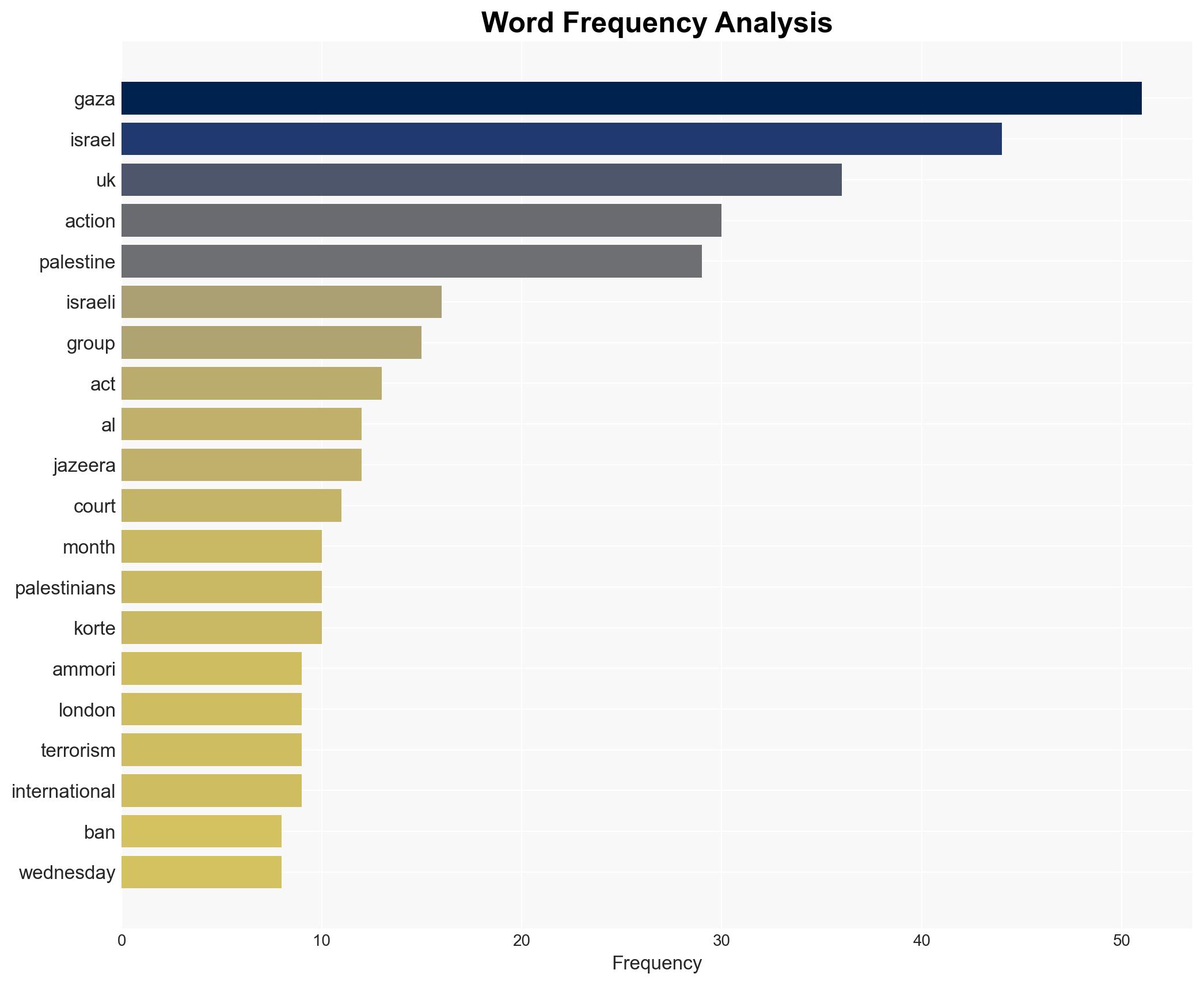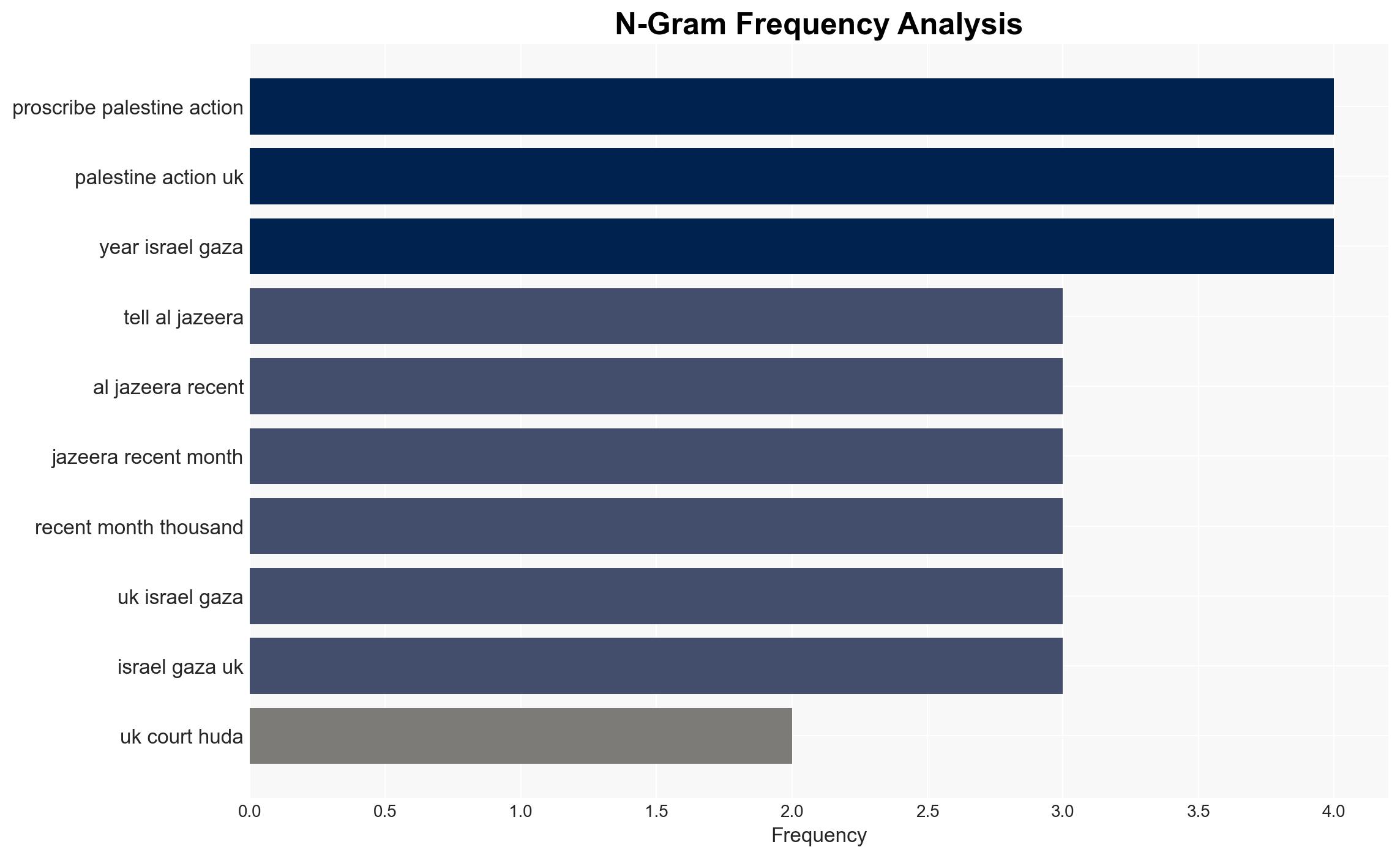Palestine Action cofounder to challenge groups proscription in UK court
Published on: 2025-11-25
AI-powered OSINT brief from verified open sources. Automated NLP signal extraction with human verification. See our Methodology and Why WorldWideWatchers.
Intelligence Report:
1. BLUF (Bottom Line Up Front)
With a moderate confidence level, the most supported hypothesis is that the legal challenge against the proscription of Palestine Action in the UK will highlight significant legal and political debates surrounding the use of anti-terrorism laws against protest groups. The strategic recommendation is to monitor the judicial proceedings closely, as a ruling in favor of Palestine Action could set a precedent impacting future government actions against similar groups.
2. Competing Hypotheses
Hypothesis 1: The legal challenge will succeed, leading to the lifting of the proscription on Palestine Action. This outcome could embolden similar groups and increase protest activities, challenging the government’s stance on anti-terrorism measures.
Hypothesis 2: The legal challenge will fail, reinforcing the government’s position and potentially deterring future direct action protests by similar groups due to the legal and punitive risks involved.
The first hypothesis is more likely given the increasing international scrutiny and criticism of the UK’s application of anti-terrorism laws on protest groups, as well as the potential for legal arguments centered on freedom of speech and protest rights.
3. Key Assumptions and Red Flags
Assumptions: The legal system will impartially assess the merits of the case. Public opinion and international pressure could influence judicial outcomes.
Red Flags: Potential bias in media reporting, which could skew public perception. Government statements may downplay or exaggerate the threat posed by Palestine Action.
Deception Indicators: Misrepresentation of Palestine Action’s activities or intentions by either side to sway public or judicial opinion.
4. Implications and Strategic Risks
If the proscription is lifted, it could lead to increased protest activity and potential civil unrest, challenging public order and security. Conversely, if the proscription is upheld, it may deter similar groups but could also lead to accusations of governmental overreach, potentially impacting the UK’s international reputation regarding human rights.
5. Recommendations and Outlook
- Monitor the legal proceedings and public reactions to anticipate potential unrest or shifts in protest dynamics.
- Engage with international human rights organizations to address concerns and mitigate reputational risks.
- Best-case scenario: A balanced judicial outcome that addresses legal concerns while maintaining public security.
- Worst-case scenario: Escalation of protests and civil disobedience, leading to increased arrests and potential violence.
- Most-likely scenario: The case will highlight the complexities of applying anti-terrorism laws to protest groups, leading to ongoing legal and political debates.
6. Key Individuals and Entities
Huda Ammori, cofounder of Palestine Action, is the primary individual challenging the proscription. The UK government, represented by Prime Minister Keir Starmer, is the entity enforcing the proscription.
7. Thematic Tags
Structured Analytic Techniques Applied
- Cognitive Bias Stress Test: Expose and correct potential biases in assessments through red-teaming and structured challenge.
- Bayesian Scenario Modeling: Use probabilistic forecasting for conflict trajectories or escalation likelihood.
- Network Influence Mapping: Map relationships between state and non-state actors for impact estimation.
Explore more:
National Security Threats Briefs ·
Daily Summary ·
Support us





